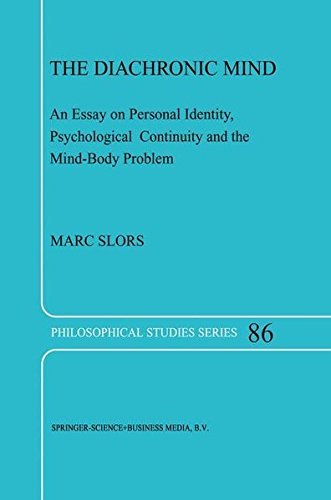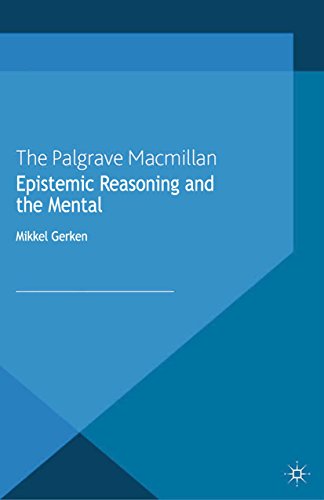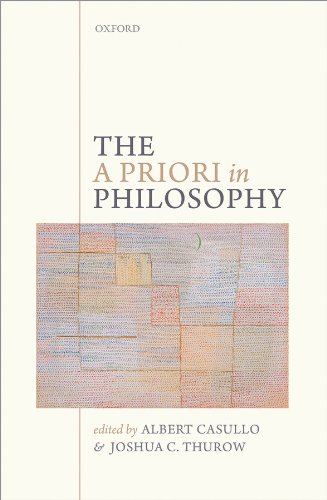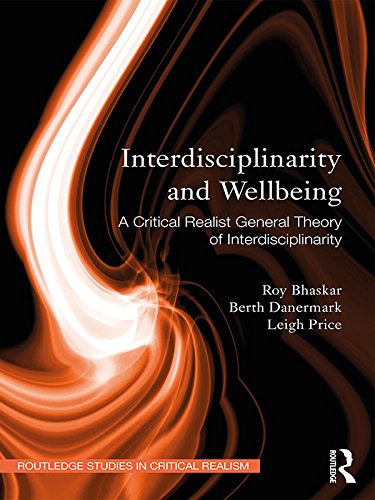
By Russell Hardin
ISBN-10: 0691137552
ISBN-13: 9780691137551
ISBN-10: 0691162220
ISBN-13: 9780691162225
How do traditional humans come to understand or think what they do? we want an account of this technique to assist clarify why humans act as they do. you may imagine i'm appearing irrationally--against my curiosity or my purpose--until you already know that what you recognize and what i do know fluctuate considerably. My activities, given my wisdom, may make eminently strong experience. after all, this pushes our challenge again one level to evaluate why a person understands or believes what they do. that's the concentration of this booklet. Russell Hardin supposes that folks are usually not frequently going to behave knowingly opposed to their pursuits or different reasons. to aim to appreciate how they've got come to their wisdom or ideals is consequently to be charitable in assessing their rationality. Hardin insists on the sort of charitable stance within the attempt to appreciate others and their occasionally objectively perverse actions.
Hardin offers an basically monetary account of what somebody can come to understand after which applies this account to many components of normal lifestyles: political participation, non secular ideals, renowned wisdom of technology, liberalism, tradition, extremism, ethical ideals, and institutional wisdom. All of those should be enlightened via the supposition that folks try moderate activities lower than the serious constraints of buying greater wisdom after they face calls for that a ways outstretch their possibilities.
Read Online or Download How Do You Know?: The Economics of Ordinary Knowledge PDF
Similar epistemology books
Download e-book for iPad: The Diachronic Mind: An Essay on Personal Identity, by M.V. Slors
Vii 1 ~OOUCTIONANOOVERVlliW 1 2 SEITING THE degree: own id ANO THE MErAPHYSICS OFMIND 1. creation 6 2. the matter of non-public identification through the years 7 three. The mental Criterion of private identification through the years 12 four. The Neo-Lockean mental Criterion of private id sixteen five. The Circularity Objection 19 6.
New PDF release: Epistemic Reasoning and the Mental (Palgrave Innovations in
Epistemic Reasoning and the psychological integrates the epistemology of reasoning and philosophy of brain. The booklet includes introductions to simple thoughts within the epistemology of inference and to special elements of the philosophy of brain. by means of studying the basic expertise interested in reasoning, Gerken argues that reasoning's epistemic strength will depend on the exterior surroundings in ways in which are either fabulous and epistemologically very important.
New PDF release: The A Priori in Philosophy
For far of the prior millennia philosophers have embraced a priori wisdom and feature concept that the a priori performs a tremendous function in philosophy itself. Philosophers from Plato to Descartes, Kant to Kripke, all advise the a priori and have interaction in a priori reasoning of their philosophical discussions.
Interdisciplinarity and Wellbeing: A Critical Realist by Roy Bhaskar,Berth Danermark,Leigh Price PDF
During this ebook, the authors offer a much-needed common conception of interdisciplinarity and relate it to health/wellbeing examine perform. In so doing they be sure that practitioners of different disciplines to speak with no contradiction or compromise, resolving the tensions that beset a lot interdisciplinary paintings.
- Philosophy of Language and Linguistics: The Legacy of Frege, Russell, and Wittgenstein (Philosophische Analyse / Philosophical Analysis)
- Social Epistemology and Technology: Toward Public Self-Awareness Regarding Technological Mediation (Collective Studies in Knowledge and Society)
- Transformative Experience
- Justification and the Truth-Connection
- An Introduction to Design Arguments (Cambridge Introductions to Philosophy)
- Toward Consilience: The Bioneurological Basis of Behavior, Thought, Experience, and Language
Extra info for How Do You Know?: The Economics of Ordinary Knowledge
Example text
How Do You Know?: The Economics of Ordinary Knowledge by Russell Hardin
by Michael
4.4



